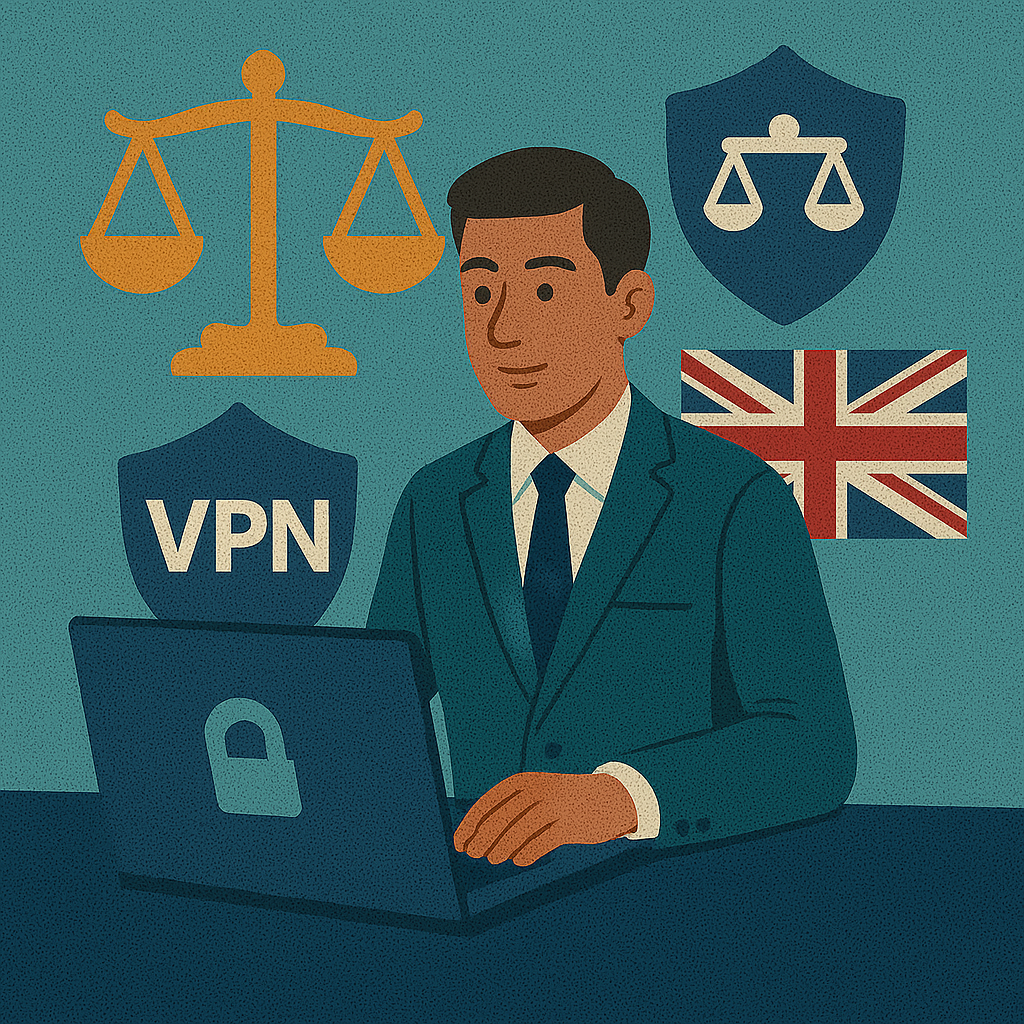Quick answer: A VPN is a privacy tool, not a magic invisibility cloak. Use a trusted service, enable the Kill Switch, pick a nearby server, and configure your app properly for the best results.
Myth 1: “A VPN always kills your speed”
Speed loss depends on distance and server load, plus the protocol you choose. With a nearby, less-loaded server and a modern protocol, the difference can be small. If you want to measure it correctly, follow our step-by-step VPN speed test. For streaming-specific advice, see VPN for streaming.
Myth 2: “Using a VPN is illegal in the UK”
In most countries, including the UK, VPNs are legal — what matters is what you do online. Learn the nuances in Is a VPN legal? and why privacy tools are legitimate for work and travel.
Myth 3: “Free VPNs are just as good as paid ones”
Free services often cap bandwidth and speed, have fewer locations, and may monetise through ads or questionable policies. See our comparisons: Free VPN and Free vs Paid VPN. If you’re after the safest free options, check Best Free VPN (UK).
Myth 4: “A VPN makes you 100% anonymous”
A VPN hides your IP, but your browser fingerprint, cookies and DNS still matter. Always enable the Kill Switch and test for leaks using our DNS leak guide. For app hardening, see Optimal VPN settings and Kill Switch.
Myth 5: “Any server works for streaming or P2P”
For streaming you want stable latency and the right country; for P2P you need throughput and clear provider policy. Start with a nearby, lightly-loaded node. Our practical picks: Which VPN server? and Safe P2P with a VPN. Console or TV? See VPN on a router for devices without native apps.
Myth 6: “A VPN alone solves Wi-Fi and security”
A VPN is one layer. You still need solid Wi-Fi hygiene (WPA3, strong keys, updates), and safe habits on public hotspots. Start here: Wi-Fi security basics, the Wi-Fi security checklist, and travel rules in Public Wi-Fi with a VPN. For work devices, see Remote work & VPN.
Bonus: “Protocols are all the same”
They aren’t. Modern protocols prioritise speed and reliability over legacy ones. If your app lets you choose, start with WireGuard-based implementations; fall back to OpenVPN if needed. Deep dive: VPN protocols explained.
Video: The most common VPN misconceptions
If the video doesn’t load: watch on YouTube.
FAQ
Does a VPN always slow the internet?
No. Choose a nearby, less-loaded server and a modern protocol; check with a proper speed test.
Is a VPN legal in the UK?
Yes — VPNs are legal; your online activities must still comply with the law. See VPN legality.
Are free VPNs as safe as paid ones?
Usually not. Expect limits and weaker privacy. Compare free vs paid or pick from Best Free VPN.

